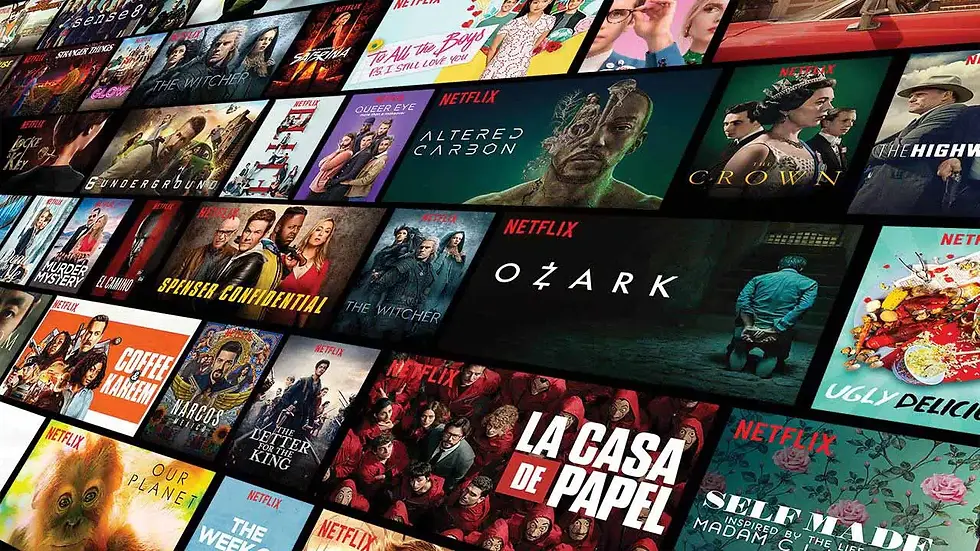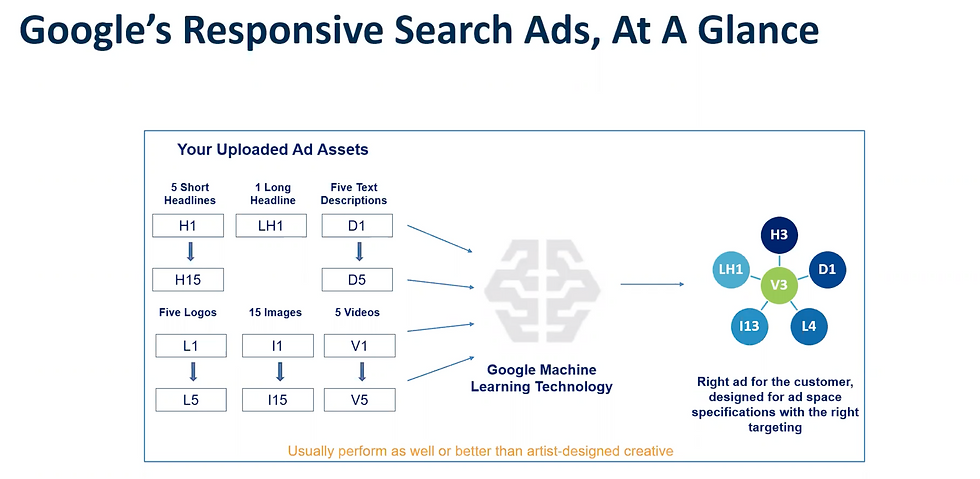Machine Learning and AI Seminar – Sam Leung from The Aber Group
- Gillian Wong

- Oct 6, 2022
- 4 min read
Have you ever wondered why Netflix can recommend drama that suits your taste or Amazon can push items that are on your bucket list?

This is all because of Artificial Intelligence (AI), which is defined as any kind of algorithm that can mimic human behaviour. Despite the fact that machine learning and AI are prevalent nowadays, we are still at the infant stage as mentioned by Sam Leung, the Vice President of Search and Ad Technologies at The Aber Group. Speaking about Sam, he had an academic background in Computer Science and Bioinformatics, then he switched to the digital marketing industry as an intern at The Aber Group in 2018 once he realized that he prefers to solve marketing problems with technology instead of developing technology. It was a pleasure to attend his inspiring and useful seminar on how marketers make use of machine learning and AI.
Data Usage in Marketing
According to Sam, the smart bidding strategy powered by machine learning has dramatically changed the marketing industry as it helps marketers to save marketing costs and optimize conversions in ad bidding auctions. For example, the update of cost-per-click bids in Google Ads that used to be done manually has now been taken care of by the machine. This not only saves marketing costs but also gives better ad performance with higher ROI. However, the development of AI is still at the infant stage where most of the algorithms we are in contact with today are called Reactive AI. They have no memory and only respond to stimuli or data input to generate recommendations for single use, like spam filters for our email. Sam emphasized that we are still far away from the higher forms, namely Limited Memory AI, Theory of Mind AI and Self-aware AI.

Source: David, 2021
Since AI is an iterative learning process which takes in massive data and learns quickly. Sam emphasized that it is essential to have a lot of good, reputable and solid data for proper machine training to optimize performance. One obstacle identified by Sam was the increasing concern for customer privacy. For example, he mentioned Apple’s iOS 14.5 update has limited the amount of data shared with third parties. This has significantly reduced the amount of user data that can be collected by Facebook and hindered its ability to target its ads to the right audience. As a marketer, we should keep ourselves updated about the latest industry trend and stay active in industry associations like the Interactive Advertising Bureau of Canada and the Canadian Marketing Association.
Uses of Artificial Intelligence
From the marketing perspective, AI is used in predictive modelling, responsive creative, behavioural and similar audience targeting, etc. This resonates with my previous hands-on experience in creating Google responsive ads. Google Ads is able to utilize the ad asset, like headlines and images, to automatically generate various ad combinations that suit different viewers and give better performance.

Source: Sam’s presentation slide
Modern ad platforms like Google Ads and Facebook Ads are truly doing a great job in saving marketers time and effort, yet Sam reminded us to remain skeptical about their claims of having the best machine learning algorithms before spending our limited marketing resources.
From a non-marketing perspective, Instagram feed, Apple Music personalized playlist, YouTube video recommendations, and Google search results are all examples of AI usage in our day-to-day lives. AI has benefits like high efficiency and accuracy, but it also imposes risks like privacy issues. Although there are ongoing debates about the use of AI, it is undoubtedly the most transformative technology nowadays. In my opinion, we should embrace AI technology and learn more about it to gain a competitive advantage in this ever-changing digital world.
Case Study: Diving Into Practical Machine Learning
At the end of the sharing session, we were tasked to think from the ad agency's perspective about the use of machine learning to optimize performance. Below are some best practices suggested by my group:
Use reliable data to train machine learning
Set clear campaign objectives and goals
Start with simple matrices before scaling because machine learning is an incremental process that iterates through several solutions
Understand the process of machine learning and manage expectations for output
Sam agreed with all the above and highlighted that machine learning is not a static process instead it requires continuous re-training of the machine to cater to the changing conditions. Regarding privacy-related concerns, our group mentioned that companies should only collect, use and share the necessary data. Sam further elaborated on the idea of data minimization which refers to limiting the collection of personal information to what is directly relevant and necessary to fulfill a specific goal. This reminded me to be more aware of data privacy and security issues in the marketing landscape including the relevant laws and guidelines.
Reflections
The seminar was interesting and informative, more importantly, it inspired me to learn more about AI and its applications in the marketing field. Also, I am glad to understand more about the work in an agency firm which further strengthens my desire to get into a paid media agency in the future. Being a person who loves creative elements while at the same time enjoying using logical ways to solve problems, advertising is definitely appealing to me.
Reference:
David, M. (2021, September 1). Future of Artificial Intelligence in Banking & Financial Industries - Global Stats, Types & Functionality. Stefanini Group. https://stefanini.com/en/insights/articles/artificial-intelligence-in-banking-and-financial-industries



Comments